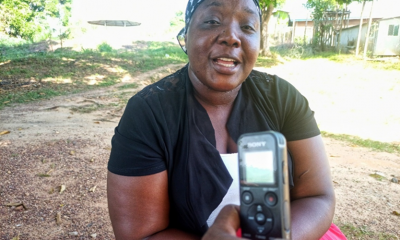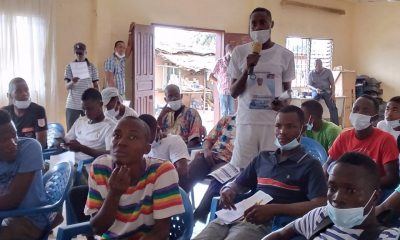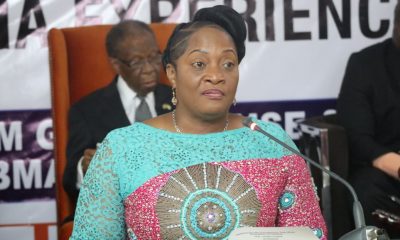

Monrovia – Internews Liberia and six media partners are set to begin a massive electoral reform reporting project in Liberia.
Report By: Henry B. Gboluma, Jr. / henryv2030@gmail.com
Two training workshops on election reforms reporting have ended in Monrovia, setting the pace for the project to begin.
One of the workshops – a Training of Trainers (TOT) – was held for mentors and leads of the six partners from Febraury 20-22, while the other drilled journalists on the rudimentary of election reforms reporting February 25-27.
Sixteen journalists have been selected from acorss the country ( one from each county; two from Montserrado) to form a fellowship of reporters. They will be trained on how to report about elections reform issues.
The project, dubbed Citizens Engaged to Advance Electoral Reform project (CLEAR), will run for eight months and will give media coverage to Liberia reforms issues by featuring people’s views from across the country.
It is part of Internews Liberia Media Development Program funded by the United States Agency for International Development (USAID).
Daily Observer, Bush Chicken, Local Voices Liberia, Liberia Media Center (LMC), the Female Journalist Association of Liberia (FeJAL) and the Liberia Media for Democratic Initiative (LMDI) are major implementing partners of the project.
The implementing partners will train and work with fellows to report on the CMFs and other activities. According to him,
Jefferson Massah, who is the Senior Community Radio Advisor of Internews, said 30 community media forums (CMF) will be held across the country – two in each county. These CMF, he said, will ensure ordinary citizens participation across in electoral reform dialogues”.
At the same time, Crispin Tulay, Internews Journalism Advisor, added: “Let your reporters focus on writing story about what the ordinary people will say about factors which affect voter turnout, how elections are organized, CSOs and political recommendations for reform, as well as the tenure of the lawmakers and the president.”
Madam Barwudu Johnson,
Franklin Bonner, Deputy Chief of Party of USAID’s Liberia Accountability and Voice Initiative (LAVI), said he expects the CLEAR project to increase advocacy that will influence lawmakers and policy
Atty. Cephas N.
“Because these opinions from the Supreme Court are automatic laws, so let the people be informed during all your forums so that they cannot waste time talking about them,” Atty.
At the end of the trainings, participants expressed optimism about a sucessful porject.
John Kollie, the LMDI Executive Director of LMDI said, “I think the training gave us basic knowledge on reform issues and provided the skills on facilitating election reforms forum.”
Fatu Boely, a reporter with Local voices Liberia who is based in Bong County, said it she’s now charged with the responsibility to focus her reporting on election reforms issues.
“I am now able to report on what ordinary Liberians want to see change in the constitution about elections in the country,” she said.
Siatta S. Johnson, President of FeJAL, described the training as “helpful” to the reform process in Liberia, noting that it will help to expand electoral reform stories at the national level that will inform decision makers.


Methodology

True
The claim is rigorous and the content is demonstrably true.

Half True
The statement is correct, although it needs clarification additional information or context.

Unproven
Evidence publicly available neither proves nor disproves the claim. More research is needed.

Misleading
The statement contains correct data, but ignores very important elements or is mixed with incorrect data giving a different, inaccurate or false impression.

False
The claim is inaccurate according to the best evidence publicly available at this time.

Retraction
Upon further investigation of the claim, a different conclusion was determined leading to the removal of the initial determination.

Toxic
A rude, disrespectful, or unreasonable comment that is somewhat likely to make you leave a discussion or give up on sharing your perspective. Based on algorithmic detection of issues around toxicity, obscenity, threats, insults, and hate speech;
































































































































































































































































































































































































































































































































































































